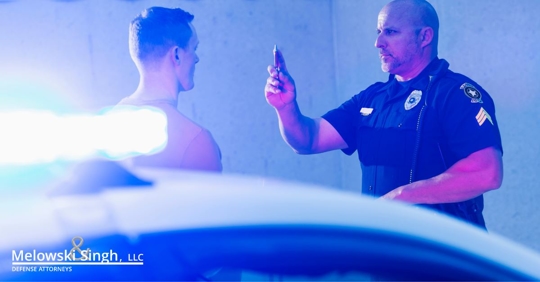Many individuals accused of driving under the influence are concerned about the status of their driver’s license. After all, many of us rely on the ability to drive to get through daily life. So, when is your license at risk after DUI? Let’s discuss.
When You Could Lose Your License During a DUI Stop
The initial DUI stop begins when the officer pulls you over. As they approach your window, they will be paying close attention to any signs of impairment you display. If they believe you are under the influence, they may request that you take a roadside breath test or series of field sobriety tests.
If you take a breath test or field sobriety tests and fail, your license will not automatically be suspended. You will not be subject to possible license suspension until after you are arrested for DUI.
License suspension may also be a penalty for chemical test refusal. Wisconsin has implied consent laws, which require that drivers take chemical tests when asked by the police. This includes breath, blood, and urine tests.
What is the Penalty for Failing Field Sobriety Tests?
There is no direct penalty if you participate in field sobriety tests and fail them. Instead, your performance on these tests can give the officer probable cause to arrest you and can be used as evidence in your DUI case.
However, field sobriety test evidence is highly contested. Many professionals believe that the faults of field sobriety tests far outweigh the evidence they provide. Individuals may fail field sobriety tests while sober or pass them while under the influence.
Fighting Field Sobriety Test Evidence
Our DUI attorneys at Melowski & Singh, LLC know how to fight against the evidence collected during field sobriety tests. We know the weak points of these tests, as well as other sobriety examinations, and can create a strong defense on your behalf. Click here to see the wide variety of DUI-related cases that our team can assist you with.

